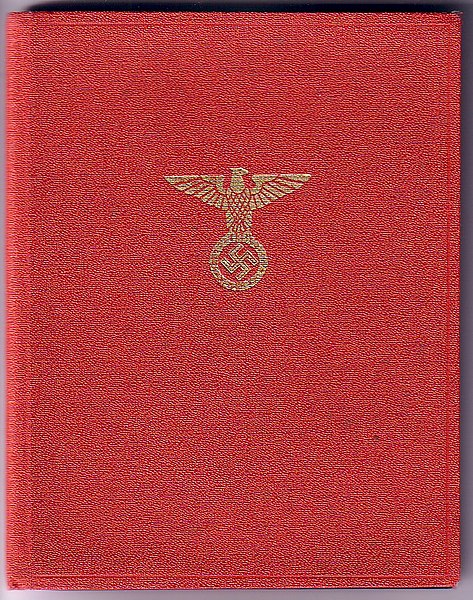Hermann Esser was an early member of the Nazi Party (NSDAP). A journalist, Esser was the editor of the Nazi paper, Völkischer Beobachter, a Propaganda Leader, and a Vice President of the Reichstag. In the early days of the party, he was a de facto deputy of Adolf Hitler. As one of Hitler's earliest followers and friends, he held influential positions in the party during the Weimar Republic, but increasingly lost influence during the Nazi era.
Hermann Esser
Hermann Esser (far right, back to camera) with Heinrich Himmler (left), Reinhard Heydrich (middle), Karl Wolff (2nd from right) at the Obersalzberg, May 1939
The Nazi Party, officially the National Socialist German Workers' Party, was a far-right political party in Germany active between 1920 and 1945 that created and supported the ideology of Nazism. Its precursor, the German Workers' Party, existed from 1919 to 1920. The Nazi Party emerged from the extremist German nationalist, racist and populist Freikorps paramilitary culture, which fought against communist uprisings in post–World War I Germany. The party was created to draw workers away from communism and into völkisch nationalism. Initially, Nazi political strategy focused on anti–big business, anti-bourgeois, and anti-capitalist rhetoric; it was later downplayed to gain the support of business leaders. By the 1930s, the party's main focus shifted to antisemitic and anti-Marxist themes. The party had little popular support until the Great Depression, when worsening living standards and widespread unemployment drove Germans into political extremism.
NSDAP membership book
Mein Kampf in its first edition cover
Nazis during the Beer Hall Putsch in Munich
Hitler with Nazi Party members in 1930






